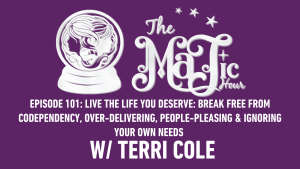
The desire to make others happy is a trait many of us value highly, often viewing it as synonymous with kindness and generosity. However, when the act of pleasing others comes at the expense of our own well-being, it transitions from a virtue to a potential source of self-neglect. In our exploration of personal growth and empowerment, it becomes essential to confront the nuanced implications of people-pleasing, particularly its psychological and social repercussions, and present an effective pathway for those seeking liberation from this cycle.
The Hidden Costs of People Pleasing
While the inclination to prioritize others’ happiness can appear commendable, problems arise when this tendency overshadows our own needs and desires. This imbalance can severely impact our psychological health and the quality of our relationships. The core issue lies in the gradual erosion of one’s identity and self-worth as personal interests, passions, and aspirations are sidelined in favor of accommodating others. This pattern of self-neglect not only strains mental health but can also undermine the foundations of relationships that were once sources of joy and fulfillment.
The Psychological Impact
The psychological toll of people-pleasing is profound. Individuals may find themselves trapped in a cycle of seeking approval and validation from others at the cost of their own happiness. This constant striving for external validation can lead to stress, anxiety, and a significant decrease in self-esteem. Over time, the person may lose touch with their own desires and passions, leading to feelings of emptiness and dissatisfaction with life.
The Social Consequences
Beyond the personal sphere, the tendency to prioritize others’ needs can adversely affect social dynamics, leading to imbalanced and one-sided relationships. In such scenarios, the people pleaser’s efforts are often unnoticed and unreciprocated, fostering feelings of being underappreciated and invisible. This dynamic can create a sense of loneliness and isolation, even in the presence of others, highlighting the importance of mutual respect and reciprocity in maintaining healthy, fulfilling connections.
Cultivating Healthier, More Balanced Connections
The path to overcoming the cycle of people-pleasing involves fostering self-awareness and cultivating the courage to set boundaries. It’s about recognizing the importance of saying no as an act of self-respect and understanding that respecting our own needs is just as important as respecting those of others. Embracing assertiveness and learning to communicate our needs effectively can lead to the development of more balanced and mutually satisfying relationships.
A Step Towards Empowerment
For those ready to embark on this transformative journey, there is a beacon of hope. We’ve introduced a comprehensive course titled “Honing Assertiveness: A Prerequisite to Self-Mastery,” designed to guide individuals towards recognizing their worth, asserting their needs, and building healthy, reciprocal relationships. This course represents a crucial step towards personal empowerment and the establishment of a fulfilling life free from the constraints of people-pleasing.
Conclusion
Breaking free from the trap of people-pleasing is a pivotal step on the path to personal growth and empowerment. By embracing assertiveness and prioritizing our own well-being, we open the door to healthier, more balanced relationships and a life marked by genuine fulfillment. Remember, the journey towards a more assertive and satisfying life begins with a single, decisive step. If you’re ready to take that step, the journey towards self-mastery awaits.
Based on the provided video transcription, here’s a comprehensive FAQ section generated from the content:
The Skinny
People pleasing may seem like a positive trait, focusing on making others happy. However, it becomes harmful when it comes at the expense of one’s own well-being, leading to stress, anxiety, and loss of self-identity.
In romantic relationships, people pleasing can strain mental health and erode the foundation of relationships. It often results in one partner neglecting their own needs, interests, and aspirations to appease the other, leading to imbalance and dissatisfaction.
People pleasing can lead to a constant pressure to conform and please, resulting in stress, anxiety, and a plummet in self-esteem as individuals seek approval for every decision.
People pleasing can lead to imbalanced, one-sided relationships where one’s efforts are unnoticed and unreciprocated, often making the person feel underappreciated and invisible.
Breaking the cycle of people pleasing starts with awareness and a conscious decision to change. Setting boundaries, expressing needs openly, and prioritizing mutual respect and reciprocity in relationships are key steps.
Free mini-Course on Honing Assertiveness
Related YouTube Video
related podcast episode

#101 Break Free From Codependency, Over-Delivering, People-Pleasing, & Ignoring Your Own Needs So You Can Finally Live the Life You Deserve w/ Boundary Boss: Terri Cole
EPISODE #101: Break Free From Codependency, Over-Delivering, People-Pleasing, & Ignoring Your Own Needs So You Can Finally Live the Life You Deserve w/ Boundary Boss: Terri Cole Most of us were never taught how to effectively express our preferences, desires, or deal- breakers. Instead, we hide our feelings behind passive-aggressive
Get my newsletter
Blog

Navigating Co-Parenting with Grace and Purpose: A Guide for Single Parents
Navigating Co-Parenting with Grace and Purpose: A Guide for Single Parents In today’s world, co-parenting has become increasingly common. While it presents unique challenges, it also offers opportunities for personal growth and creating a positive environment for your children. This guide provides valuable insights and practical tips for single parents

From Depression to Wellness: A Journey Through Plant Medicine and Mindful Practices
From Depression to Wellness: A Journey Through Plant Medicine and Mindful Practices In today’s fast-paced world, mental health challenges are becoming increasingly common. Many individuals are seeking alternative methods to cope with depression, anxiety, and other mental health issues. This blog post explores one person’s journey from the depths of

Understanding Human Design: A Guide to Your Energetic Blueprint
Understanding Human Design: A Guide to Your Energetic Blueprint Have you ever wondered why you interact with the world in a particular way? Human Design, a system that combines astrology, the I Ching, Kabbalah, and quantum physics, offers fascinating insights into our unique energetic makeup. Let’s dive into this intriguing

Navigating Perpetual Issues in Relationships: A Guide to Long-Term Harmony
Navigating Perpetual Issues in Relationships: A Guide to Long-Term Harmony In the realm of romantic relationships, conflicts are inevitable. But did you know that a staggering 69% of these conflicts revolve around what experts call “perpetual issues“? Understanding and managing these ongoing challenges is crucial for maintaining a healthy, long-lasting

Kyle Kingsbury on Open Relationships: Strengthening Bonds and Building Tribes
Kyle Kingsbury on Open Relationships: Strengthening Bonds and Building Tribes In a candid discussion, former UFC fighter and podcaster Kyle Kingsbury shared his experiences with open relationships, offering a unique perspective on how this lifestyle choice has impacted his marriage and personal growth. Kingsbury’s insights challenge conventional relationship norms and

Harnessing Your Hormonal Cycle: A Woman’s Guide to Optimizing Life
Harnessing Your Hormonal Cycle: A Woman’s Guide to Optimizing Life As women, our bodies go through a complex dance of hormonal changes each month. While these fluctuations can sometimes feel overwhelming, understanding and working with your menstrual cycle can be a game-changer. Let’s explore how you can optimize your life


